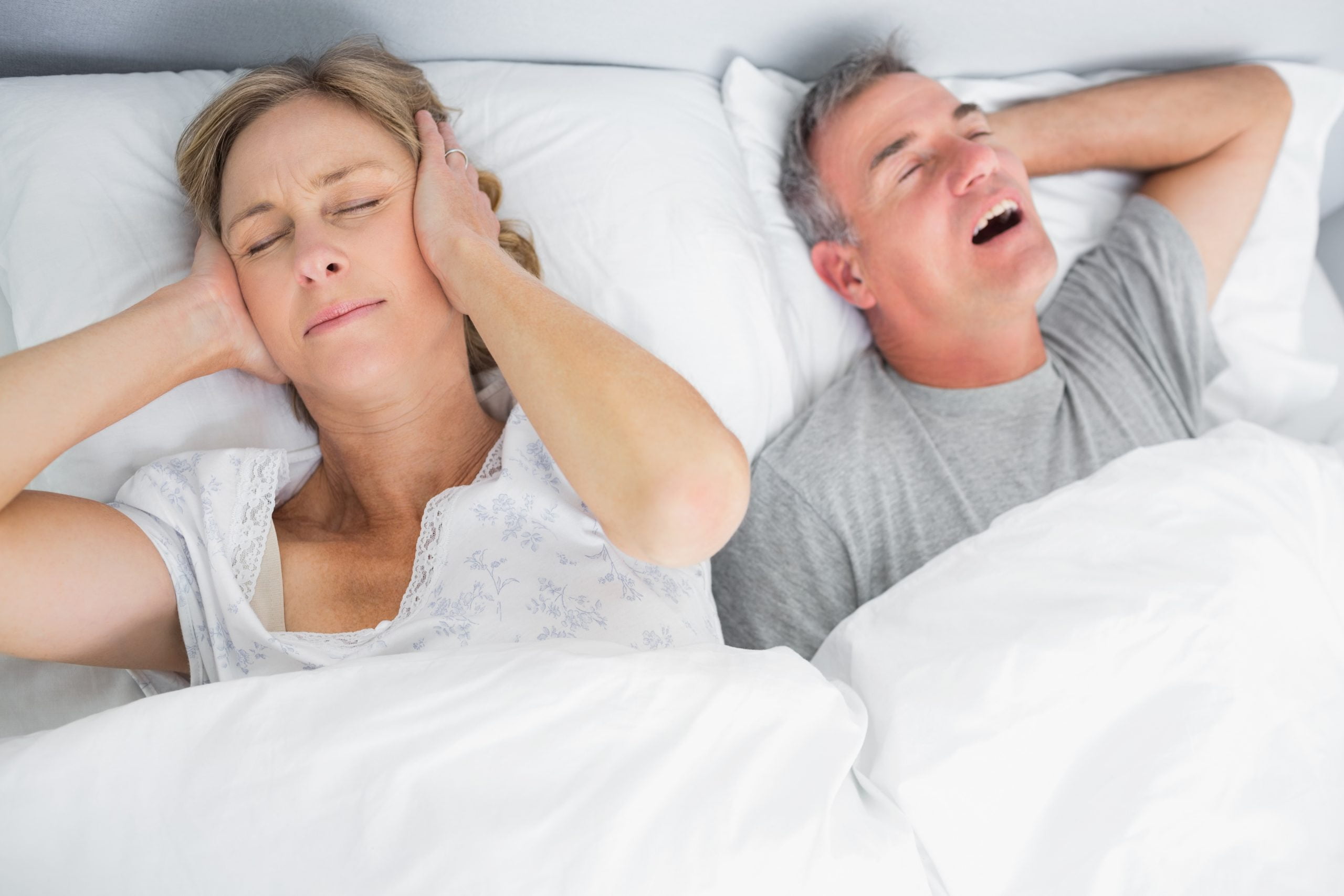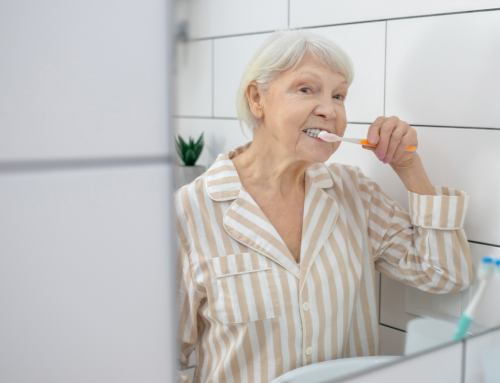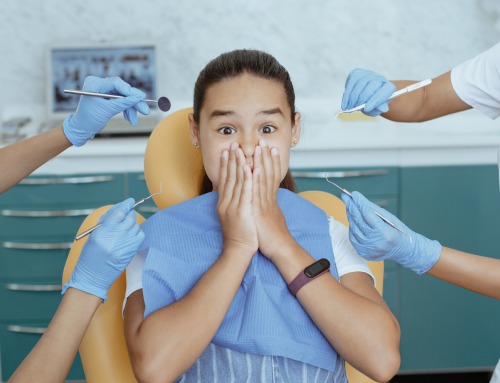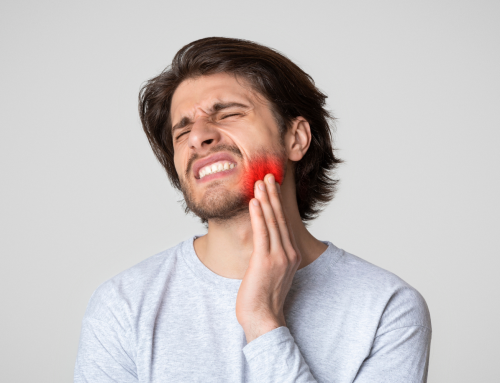Snoring and sleep apnea are common issues affecting sleep quality and overall health. While many people may think these are problems best addressed by a sleep specialist, dentists play a crucial role in diagnosing and treating these conditions.
At Somerset Dental, we are committed to helping our patients find effective solutions to improve their sleep and overall well-being. In this blog, we’ll explore how a dentist can help with snoring and sleep apnea and what treatment options are available.
Understanding Snoring and Sleep Apnea
Snoring happens when airflow through the mouth and nose is partially blocked during sleep. This blockage causes the tissues in the throat to vibrate, producing the sound commonly associated with snoring.
While occasional snoring is common and usually harmless, chronic snoring can indicate a more serious condition, such as sleep apnea.
What Is Sleep Apnea?
Sleep apnea is a disorder in which breathing repeatedly stops and starts during sleep. These interruptions, known as apneas, can last a few seconds to a minute and may occur multiple times throughout the night. There are two main types of sleep apnea: Obstructive Sleep Apnea (OSA), caused by a physical airway blockage, and Central Sleep Apnea (CSA), which occurs when the brain fails to send proper signals to the muscles that control breathing.
How a Dentist Can Help with Snoring and Sleep Apnea
Recognizing the signs and understanding the severity of snoring and sleep apnea is essential, but how can a dentist help in addressing these issues?
Dental Evaluation and Diagnosis
A thorough dental evaluation is one of the first ways a dentist can help with snoring and sleep apnea. Your dentist will assess your oral structures, including your jaw, tongue, and throat, to identify any factors contributing to your snoring or sleep apnea. They may also ask about your sleep habits and symptoms to determine the severity of the condition.
Oral Appliance Therapy
For many patients, oral appliance therapy is an effective treatment for snoring and mild to moderate obstructive sleep apnea. An oral appliance is a custom-made device worn in the mouth during sleep, similar to a mouthguard or orthodontic retainer. It works by repositioning the lower jaw and tongue to keep the airway open, reducing or eliminating snoring and apneas.
Custom-Fit Appliances
At Somerset Dental, we provide custom-fit oral appliances specifically designed to fit your mouth comfortably and effectively. These devices are adjustable, allowing your dentist to make modifications as needed to ensure optimal results. Unlike over-the-counter devices, custom-fit appliances are tailored to your unique anatomy, making them more effective and comfortable to wear.
Explore how advanced technology is transforming dental care in our article on 3D printing and its impact on custom-fit oral appliances.
Additional Treatments and Recommendations
While oral appliance therapy is a popular treatment option, it’s not the only solution. Let’s explore other treatments available to help manage snoring and sleep apnea.
Continuous Positive Airway Pressure (CPAP) Therapy
For patients with moderate to severe sleep apnea, CPAP therapy is often recommended. While a sleep specialist typically prescribes CPAP machines, your dentist can work alongside them to ensure that your oral health is maintained while using the device. This collaboration is especially important if you experience discomfort or side effects from using a CPAP machine, such as dry mouth or irritation.
Surgical Options
In some cases, surgical intervention may be necessary to treat sleep apnea. Your dentist can help determine if you are a candidate for surgery by evaluating your oral and facial structures. They may also refer you to a specialist who can perform the surgery. Common surgical options include Uvulopalatopharyngoplasty (UPPP), which removes excess tissue from the throat, or Maxillomandibular Advancement (MMA), which repositions the jaw to widen the airway.
Lifestyle and Behavioral Changes
In addition to medical treatments, your dentist can recommend lifestyle and behavioural changes that may help reduce snoring and sleep apnea symptoms. These changes include losing weight, avoiding alcohol and sedatives before bedtime, and sleeping on your side instead of your back. Your dentist can also provide guidance on maintaining good oral hygiene, which is essential when using oral appliances or CPAP machines.
The Benefits of Treating Snoring and Sleep Apnea
Addressing snoring and sleep apnea is vital for improving not only your sleep but also your overall health. Let’s take a closer look at the long-term benefits of seeking treatment.
Improved Sleep Quality
One of the most immediate benefits of treating snoring and sleep apnea is improved sleep quality. By reducing interruptions in breathing and eliminating snoring, you can enjoy a more restful night’s sleep, boosting your energy levels and overall well-being.
Reduced Health Risks
Untreated sleep apnea is associated with a range of health risks, including high blood pressure, heart disease, stroke, and diabetes. You can reduce these risks and protect your long-term health by seeking treatment.
Enhanced Quality of Life
In addition to physical health benefits, treating snoring and sleep apnea can enhance your quality of life. You may have better focus and concentration during the day, improved mood, and fewer morning headaches. For many patients, the elimination of snoring also improves relationships by allowing their partners to sleep more soundly.
Snoring and sleep apnea are more than just nuisances—they are serious conditions that can significantly impact your health and quality of life. At Somerset Dental, we are committed to helping our patients find effective solutions for these issues. Whether through oral appliance therapy, collaboration with sleep specialists, or personalized lifestyle recommendations, our team is here to support you.
If you or a loved one is struggling with snoring or sleep apnea, don’t hesitate to reach out to us. Schedule an appointment today and take the first step toward better sleep and better health.
Are you or someone in your household struggling with snoring or sleep apnea? What steps have you taken to try to minimize snoring? Share your experience with our readers in the comments below.





